What Causes an Automatic Transmission to Fail? 5 Common Reasons
-
Pete Ortiz
- Last updated:
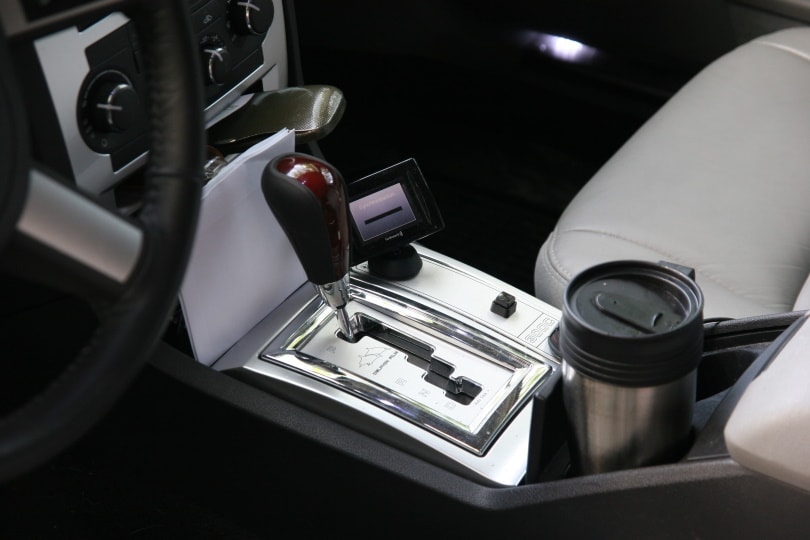
An automatic transmission may be one of the most expensive parts of a vehicle to repair or replace. Because of that, most drivers do everything they can to recognize any signs of potential damage or failure as soon as possible. Even if you identify an issue with your vehicle’s transmission, it is essential to act fast and resolve it quickly to prevent permanent damage. Catching any signs of possible problems early on can save you time, effort, and money.
There are many reasons why an automatic transmission can fail. This article will share some helpful information on the potential causes of transmission failure and signs that point out your transmission is not functioning correctly.
The 5 Reasons Your Automatic Transmission May Fail
1. Low or leaking automatic transmission fluid (ATF)
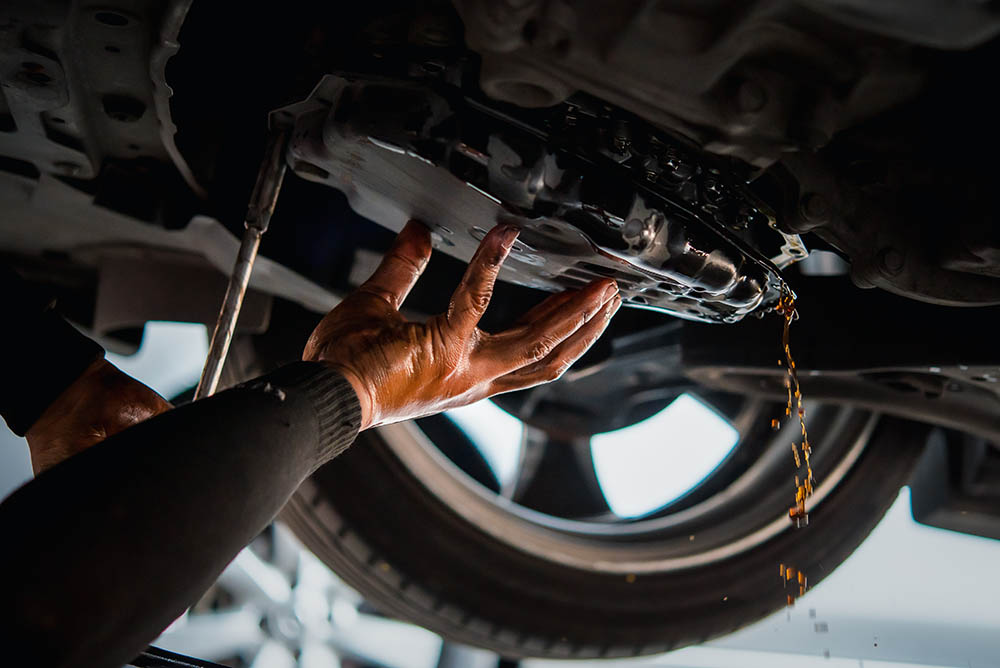
Transmission fluid is the core of a properly functioning automatic transmission and has several purposes in maintaining a healthy vehicle. The ATF needs to stay at an optimal temperature in the transmission and prevent overheating. It also helps lubricate every moving part and allows your transmission to run correctly and smoothly. Leaking or low transmission fluid is one of the biggest causes of transmission failure, and it is crucial to notice the signs quickly to prevent any further damage to the transmission.
- Puddles of bright red or dark red fluid under your car
- Difficult gear shifting
- Humming noises
- Transmission that is not engaging
- Burning smell
2. Clogged transmission filter
A clogged transmission filter is another major cause of automatic transmission failure. It has an essential role in filtering the ATF and cleaning the fluid as it passes through the transmission. If a transmission filter is clogged, it will not allow the fluid to run through the transmission properly, causing significant issues. A clogged filter can cause the parts in your transmission to overheat, and if it goes unnoticed, it can cause severe damage to your transmission.
- Delayed transmission response
- Grinding gears
- Transmission slipping
- Leaking ATF
- Burning smell
3. Transmission cooler failure
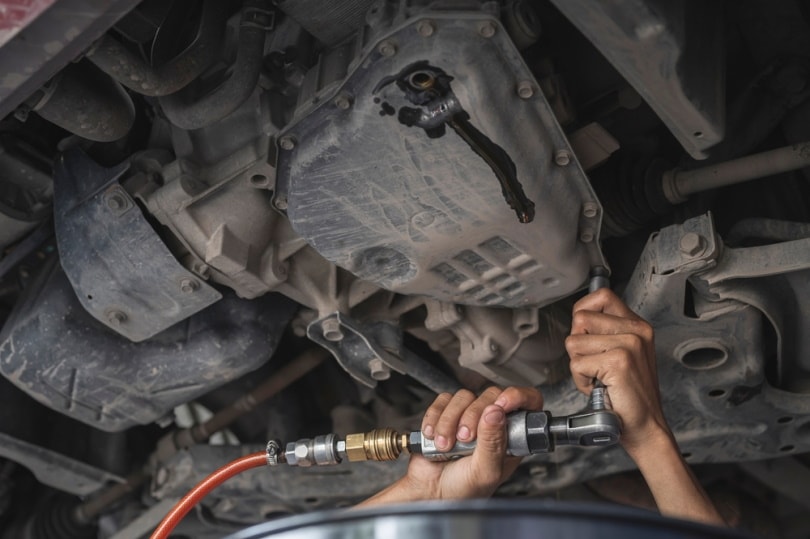
The transmission cooler is one of the most important working parts of an automatic transmission. Its purpose is to keep an optimal temperature of about 165°F to 220°F for the fluid that flows through your transmission. If for any reason, your vehicle’s cooler fails, it can cause overheating and many other severe and irreversible damage to the transmission.
Overheating is the primary concern of a faulty cooler, as it can quickly cause your entire transmission to fail. Many signs point to an improperly-working transmission cooler, and noticing them right away can help you prevent permanent damage to your entire transmission.
- Transmission fluid leaking
- Increasing temperatures (above 220°F)
- Performance and shifting issues
- Strange noises
- “Check engine” light
4. Faulty torque converter
A torque converter is another essential component that is located between the engine and the transmission. The primary purpose of a torque converter in an automatic transmission vehicle is to act as a mechanical clutch and guide the engine’s power to the transmission. If your torque converter fails, it can cause severe damage to your transmission, such as friction damage, overheating, or degrading of the automatic transmission fluid. The failure of the torque converter is one of the more common causes of transmission damage, and it can even lead to damage to other parts of the vehicle.
- Difficulty shifting gears
- Clunking and humming noises
- Overheating of the transmission
- Bad or dirty transmission fluid
5. Worn out transmission gears
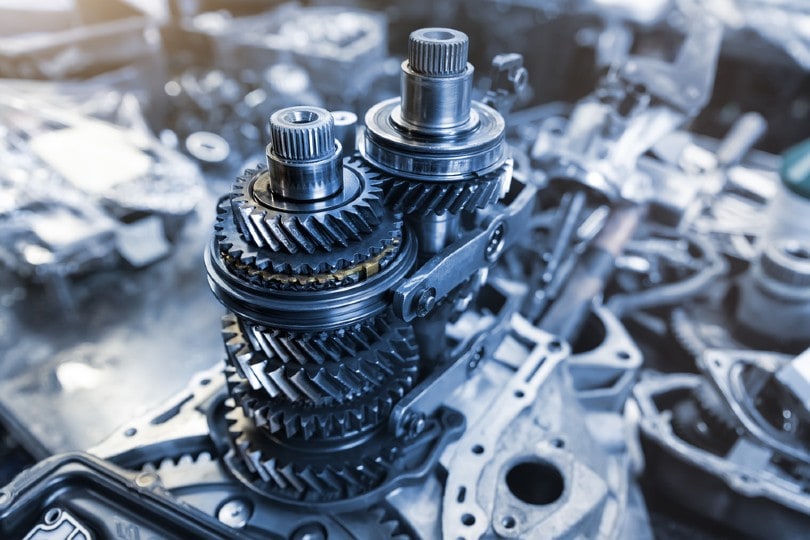
There are many parts to a working transmission, such as springs, metal drums, valves, planetary gear sets, etc. Some of these parts tend to malfunction, and the main reason is running with an overheated transmission or with bad, worn-out transmission fluid. Worn gears are a very common problem in a vehicle, which can quickly cause the transmission to fail.
The main problem with worn-out gears is that they can no longer link together correctly, so it causes many issues during driving and shifting.
- Difficulty or bumpy shifting
- Slipping transmission
- Strange transmission noises
- Leaking or bad transmission fluid
Tips on Maintaining a Healthy Transmission
There are many ways to prevent damage or failure to your vehicle’s automatic transmission. It is essential to follow these tips and advice to have a properly working transmission for a long time.
Check the transmission fluid often
As mentioned above, the transmission fluid is the most crucial part of a properly functioning transmission. It is very important to maintain it properly, which means replacing the transmission fluid regularly and keeping the fluid at the right level. Transmission fluid can turn dark brown or have a bad smell, indicating it needs replacement.
Take your car for regular preventive maintenance
The only way to be entirely sure of the health of your transmission is to take your car to routine checkups frequently. This can help you prolong its life, as you can ensure any issues are detected in time. Many signs of transmission failure occur far too late if you don’t have regular checkups, and you may spend a lot of money on repairs that you could have avoided.
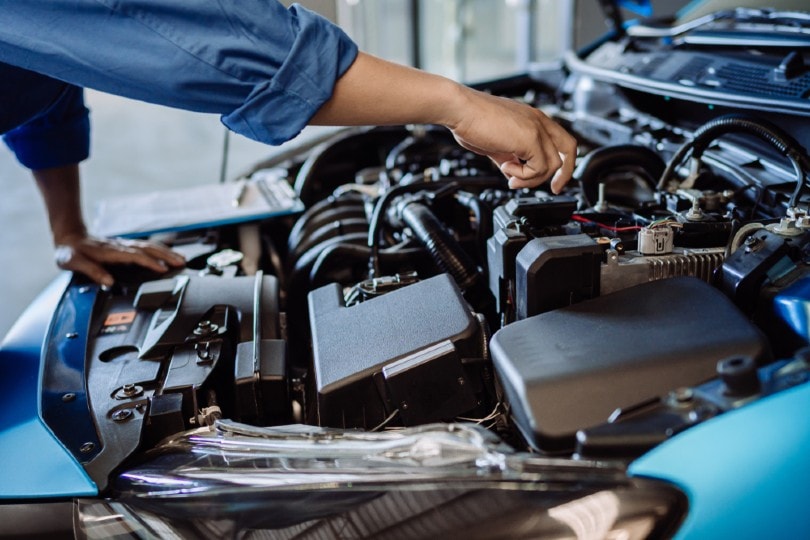
Conclusion
Many possibilities may cause your car’s transmission to fail. Being a conscientious driver means understanding the way your vehicle works and being able to detect any issues early on. Being informed of any possible reasons for problems in your transmission can help you prevent any unnecessary repairs or replacements that would cost you a lot.
If you happen to notice some strange behavior in your vehicle’s performance you can always use this article as a reminder to determine what may be the cause of your transmission failure.
Featured Image Credit: Piqsels
Contents


